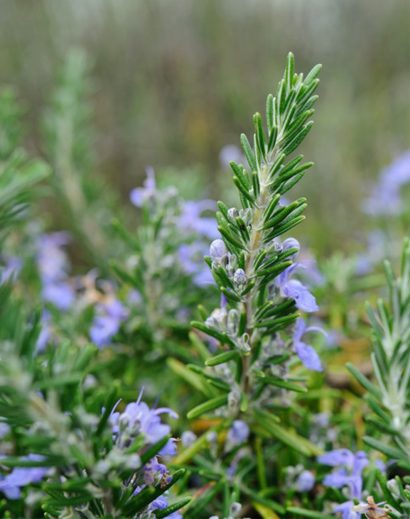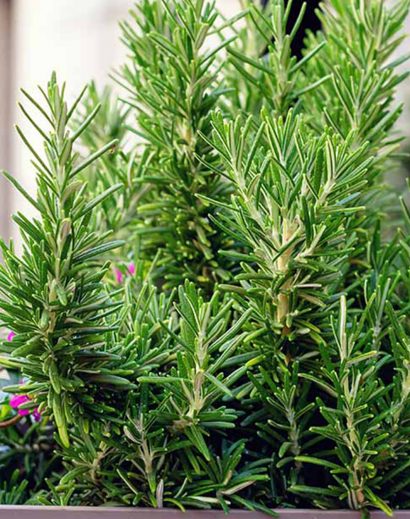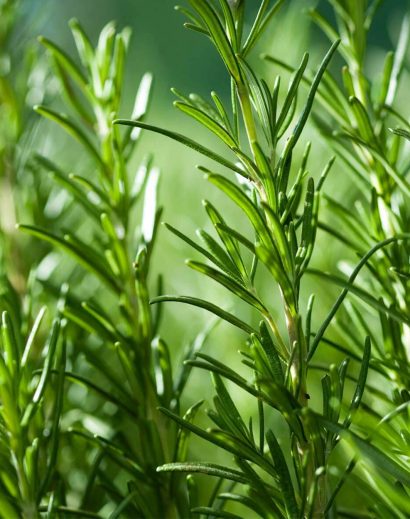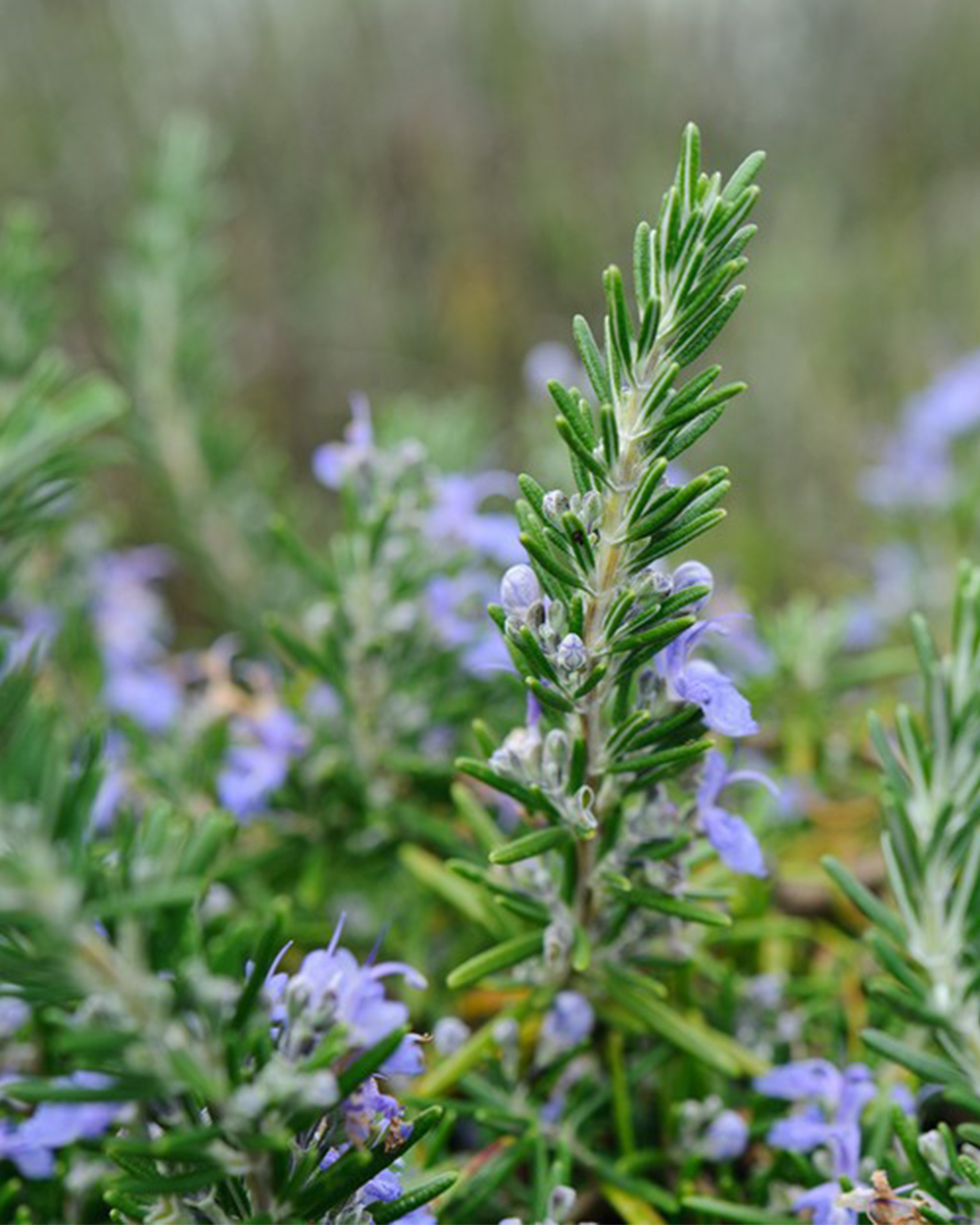Rosemary (Rosmarinus officinalis) is a fragrant and versatile herb that is commonly used in cooking, herbal medicine, and aromatherapy. Here is a description of rosemary:
- Appearance: Rosemary is an evergreen shrub that typically grows to a height of 2 to 4 feet (60 to 120 centimeters) but can sometimes reach up to 6 feet (180 centimeters). It has needle-like, narrow, and aromatic leaves that are about 1-2 inches (2.5-5 centimeters) in length. The leaves are dark green on top and lighter on the underside.
- Fragrance: One of rosemary’s most distinguishing features is its strong, pine-like fragrance. When you crush the leaves or brush against the plant, it releases a delightful aroma that is both refreshing and earthy.
- Flowers: Rosemary produces small, tubular, and usually blue or purple flowers that grow in clusters along the stems. These flowers are attractive to bees and other pollinators.
- Culinary Uses: Rosemary is a popular culinary herb, especially in Mediterranean cuisine. Its aromatic and slightly piney flavor pairs well with roasted meats, potatoes, vegetables, and bread. It is often used as a seasoning in dishes or to infuse oils and vinegar.
- Medicinal Uses: In herbal medicine, rosemary has been used for its potential health benefits. It is believed to have antioxidant and anti-inflammatory properties. Rosemary oil is also used in aromatherapy for its stimulating and invigorating scent.
- Growing Conditions: Rosemary thrives in well-drained soil and prefers full sunlight. It is a drought-tolerant plant and does well in dry, arid climates. It can be grown in containers or as a garden shrub.
- Pruning: Regular pruning helps maintain the shape and health of rosemary plants. It is often grown as a hedge or topiary due to its ability to withstand pruning and shaping.





Reviews
There are no reviews yet.